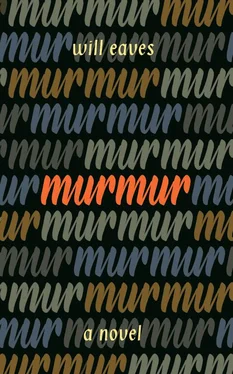What I want to say is that this is precious. “Everything is leafing and flowering, the hebe, the foxgloves, the elder, the poppies and roses. The birds are raising their second brood, and the dragonflies are laying their eggs in the ponds and the canals. The whole amazing process is underway and all of everything, the whole thing, is holy.” Those, as near as I can get them, were the words of a woman I heard speaking at one of Bill’s Quaker meetings not long ago. I don’t, as you know, believe. I’m not built to do that, I think. But the “all” of creation made sense on that occasion in a way it hasn’t before. It wasn’t a claim for power and miracles. It was a claim for almost nothing, as in “this is all that there is, and there will be no more.”
I will be waiting at the bottom of A staircase, in Gibbs’, next Sunday, at noon.
Love, June
…biological phenomena are usually very complicated… It is thought, however, that the imaginary biological systems which have been treated, and the principles which have been discussed, should be of some interest in interpreting real biological forms.
—A. M. Turing, “The Chemical Basis of Morphogenesis” (1952)
Molyneaux passes through the gates into the four-parterre of King’s front court, the chapel on his right, the dining hall clattering a summons to his left, and Gibbs’, that fallen-sideways torso of a building, straight ahead. I wait where the parterre’s triangles meet, where once there stood a statue of the college’s founder.
He cannot stop. He’s pure current. Molyneaux fades. He always fades, as species do, into the next in line. He sees in me another of his inaccessible futures, the thing his death foreclosed, and his extended hand begins to leak away, like smoke, like milk poured in a stream. He smiles and speaks. His words ripple across the flooded tank, the world’s amnion, confidences only we—the two of us—can hear. At the perimeter, on the flagstones, Trentham and his machine ally watch us confer.
They do not hear Molyneaux’s voice become my own: “Make others free, especially the souls who did not want your love, whom you would like to hurt.” That much appears to come from him, though it is flat-sounding and close and unheimlich —a diver’s voice in his own ear.
His body spins into a white vortex. A cyclone made of albumen.
A plughole opens in the ground and down he goes.
They must disperse. Set them to wander and succeed. You will be hurt instead. You will look on at your own life and find it jealous and constrained. But after that, after an unfair while, you will pass through the mirror of dismay into the bottom of the lake. So much will then astonish you. Life will arise, its accidental bitterness, its strength, swift as a shoal, rare as the kernel in the peach .
After the last of Molyneaux has disappeared, I feel the pull of gravity myself, the Coriolis force grabbing my mind. The whole of everything as he saw it, the water-world, must drain away. The flood subsides. This is the death of one viewpoint, and its rebirth, like land rising above the waves, or sea foam running off a crowded deck: the odd totality of persons each of whom says “me.”
I have more than one body waiting in this luridly familiar place, a college full of rooms. I feel them cautiously intuiting their kindred selves as they read books, look up, and frown. (Divide one soul into a thousand and a thousand souls will wonder why.) The water’s galloping retreat is every bit as fearful as the inundation that preceded it. Around the arches of the library its ebb tides rush and funnel me toward an open door in Gibbs’. Unconscious gallons run into the ground.
One last look back before I enter the building. The sky is blue above and must be sunset red elsewhere because the gatehouse ornaments are pink. Out of the four-parterre rise hebe, foxgloves, elder, poppies, and dog rose. A flock of starlings makes its usual broadcast of whoops and clicks, as though some universal operator were dialing at sea, and every now and then the signal whine seems to resolve into a phrase.
The last cascade gargles its way down A staircase. I slap the basement door, a body of water against a slab of wood. The room, according to an inscription, belongs to someone called A. M. Pryor. There are no people here—no one that I would recognize—but there is urgency. Everything’s quick.
I seethe under the oak and into Pryor’s set.
I am the body in the bed. I’m what sees him. I am the room.
I have been wondering about the strangeness of a point of view on pain and fear, the physical distinctions in a rush of feeling or a train of thought.
But now I pass around the Pryor room, I see that I am made from it. Its windows are my eyes (dark now, or blind), the thin striped mattress and the shelves of books my diaphragm and ribs, the whole material space a mind arising from such things quite naturally, a geometry that shifts and is itself the act of observing.
I am alive in here, but it is night outside. What has happened? I hear a woman very distinctly, outside the door, the sound of difficult speaking.
“Do you?” she says, and then corrects herself. “How can we tell?”
I hear the oscillations and acoustics of another large and populated room, a corridor or ward. “Perhaps he knows that I am here—”
“The spectral content of the EEGs and MEGs is weak… there’s too much damage in the upper layers, and what that means, Mrs. Pryor, what—June—”
“I know . I know. Don’t use that voice. That voice you all adopt.” An almost laughing squeal. “You even sound like him.”
“I am so sorry. June. Just, take your time. Talk to your family, and him. Keep doing that. I wish I had some better news for you.”
“There isn’t any rush, is there?”
Her voice presses against the plaster of my tympanum. The wall flexes and sheds a flake or two of paint. I put aside the herringbone blanket, get up, and stand in front of the mirror, waiting for more. A patient, some distracted wanderer—that person whom the staff must endlessly retrieve—stares back.
“There isn’t any rush, no. Absolutely not, and we have not by any means abandoned hope. You take the time you need.”
Flat-soled shoes patter up the steps. I go back to my bed and listen to the sound of breathing at my door, the trembling of these old, original windows.
A gust rattles the glass. Some angry thought. Some rage.
*
I am the Red Lady of Paviland.
I was mistaken for a tribal Celt by my Victorian discoverers, but I am much older than that. I am the guardian of the cave, a time machine in ice.
Imagine that I woke, as you are waking now, one morning thirty thousand years ago. The golden droplet of the dawn between my eyelashes, the way out of the cave glimpsed from its chilly depths. I climb down to the plains with my clansmen.
We have been watching four mammoths—a bull, a cow, a youngling, and another older male—hazard the plains these past three days. Once they were drowsy midges on the horizon. Now they are horned beetles. The older male sings wearily. They come for water in the lee of the mountains, for shelter, and for scrub.
The mountains curve out to the left of our fastness, and on the other side of that far tusk of rock the grass thickens, and there are springs. Hyenas, too, and boar, though they are not a threat. They will avoid even a lumbering and starved giant. They do not want to be trampled or gored.
We wait until the parents and the calf are round the rock, then move swiftly to separate and kill the laggard bull, who is too weak to call for help. I am upon him and climbing his flanks, digging my pole-flint in behind his ears. He sags and falls, groaning, onto his knees. I stand and ride his back, aroused by all the blood, the sight of it like tar pits bubbling at the forest’s edge.
Читать дальше












